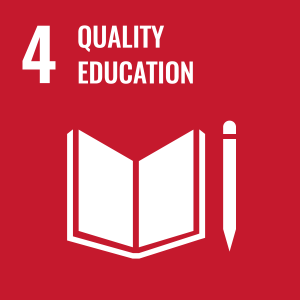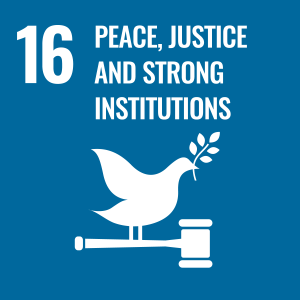
Dr Nicholas de Cruz
About
Biography
Inspired by his experiences as a former World Champion and a sailing coach, Nicholas pursued his interest in sport science at Loughborough University from 2011 to 2014. He discovered his passion for sport psychology during his final year when he investigated the motivations of elite Singaporean athletes for his undergraduate thesis. Nicholas went on to complete an MSc in Psychology at the University of Westminster in 2015, and then an MSc in Psychology of Sport and Exercise at his alma mater, Loughborough University, in 2016. Supervised by Professor Brett Smith, Nicholas completed his doctoral studies at the University of Birmingham in 2020. His PhD research was a mixed-methods exploration of the psychosocial issues entrenching elite sport in Singapore and the cultural perspectives that shape sport psychology in research and practice. His dissertation was published by Routledge as a research monograph in 2022, and has been used to inform policy and practice at the Singapore Sport Institute.
Prior to his role at the University of Surrey, Nicholas developed, taught, and led modules on Performance Psychology, Research Methods, and Qualitative Research at the Singapore University of Social Sciences. On weekends, he coached youth athletes for the Singapore Sailing Federation; he counts being the assistant coach for Singapore’s Paralympic Sailing Team during London 2012 and coaching an Australian sailor for the Youth Olympic Games 2010 amongst his most memorable experiences.
Areas of specialism
My qualifications
Affiliations and memberships
ResearchIndicators of esteem
Expert-Mentor - Humanities and Social Sciences Research Programme (HSSRP), Singapore Ministry of Education (2020 - present)
Indicators of esteem
Expert-Mentor - Humanities and Social Sciences Research Programme (HSSRP), Singapore Ministry of Education (2020 - present)
Teaching
Together with colleagues from the School of Biosciences and Medicine, Nicholas supports the BSc Sport and Exercise Science programme.
He is the Module Lead for BMS3084 Psychology of Exercise and Health, a final-year module that dives into the depths of human behaviour and its intricacies at the intersection of sport, exercise, and health. From psychological aspects of optimal athletic performance to the promotion of exercise as a vehicle to enhance health and improve well-being, the goal of this module is to systematically equip students with the necessary breadth of theoretical information and foundational applied skills required of a neophyte scientist-practitioner student in the fields of sport, exercise, and/or health.
Sustainable development goals
My research interests are related to the following:



Publications
In Schinke et al. (2018), FEPSAC contributors describe the overall progress that sport psychology has made in Europe as well as the continuing challenges for many European nations. Just like Singapore, some European nations do not have the requisite components to establish applied sport psychology as a legitimate profession. Specifically, these shared challenges are the lack of postgraduate education in sport psychology at universities; the unavailability of qualified supervisors, supervised practice, or formal training pathways; no certification system or regulating authorities; and, the scarcity of employment opportunities. In Singapore’s case, a key contributor to these challenges is the nation’s cultural make-up and the resulting mindsets, as identified in the first author’s PhD. Guided by the principles of cultural sport psychology, de Cruz (2022) conducted a sequential transformative mixed-methods exploration of the psychosocial issues entrenching elite sport in Singapore, and the professional identity and practice of sport psychology. In his conclusion, de Cruz (2022) outlines recommendations to advance the practice of sport psychology and to develop a community of professionals centred on a shared identity and culture. This work became a key resource in the Singapore Sport Institute’s efforts to systemise the practice of sport psychology. Specifically, the second author formulated strategies to educate, train, endorse, and employ local sport psychology aspirants and current practitioners, to develop a highly specialised, globally recognised, and locally relevant community. In this presentation, we share a roadmap, to conduct research and conceptualise policy, with delegates who experience similar challenges and aspire to similar goals.
With the paucity of research on the motivational processes in elite sport, this qualitative study was undertaken to explore the relationship between specific environmental factors and the motivation of elite Singaporean athletes. Consistent with the principles of interpretative phenomenological analysis (IPA), this study acted as a medium for five current and five former national athletes to provide their personal accounts of elite sport in Singapore based on their lived experiences. Semi-structured interviews were conducted and analysed according to the procedures of IPA to provide an in-depth account of participants' experiential concerns. Five super-ordinate themes emerged from the data: attraction to sport, support environment, personal sacrifices, organizational obstacles and recommendations for better well-being. These themes provide a subjective account of how participants were involved in sport for their personal satisfaction and, with a strong support environment, were willing to make sacrifices for sport but were impeded by the very organizations in place to support them. For athletes to progress in elite sport, it is recommended that organizations shift their focus on outcomes to the process and development of athletes.
The purpose of this study was to explore the implicit beliefs and underlying motivational processes of para-athletes, and how these beliefs influenced perceptions of sport performance, as well as challenge the dominant social stereotypes that misconstrue disability as inability. Utilising a qualitative research design, semi-structured interviews were conducted with five elite para-athletes from various sporting backgrounds and analysed from a psychosocial perspective according to the procedures of theoretical thematic analysis. To invoke greater emotional tone and depth, participant-created visual data were used to supplement the initial thematic analysis. Three themes associated with the implicit beliefs of para-athletes were identified and termed, (1) on being disabled, (2) achieving is believing and (3) accepting differences or being indifferent. These themes illustrated how participants had to accept the ‘fixed’ nature of their disability first, before they could work towards overcoming its limitations. Through continuously adapting and adjusting their strategies to address setbacks as they occurred, the process of accepting limitations and overcoming setbacks led to increased feelings of self-efficacy and competence, which consequently led to the dominant incremental beliefs participants held.
With team-based structures replacing traditional hierarchical systems, the purpose of this paper was to explore the concept of shared leadership and its impact on improving team performance. The five underlying mechanisms that form the components which drive shared leadership, namely (1) trust, (2) empowerment, (3) age and maturity, (4) fair reward, and (5) dispositions and beliefs, provide readers with a practical understanding of how to attain, maintain, and regain shared leadership for the performance of teams in organisations today. In addition, a focus on shared leadership in other team contexts, such as sport, unconventional and multicultural environments is also discussed to aid the progression of shared leadership research and broaden its application beyond traditional business and managerial contexts.
To communicate the paradigmatic differences of quantitative and qualitative research, this article seeks to provide a balanced argument of what constitutes ‘scientific’ or ‘unscientific’ research. I begin by clarifying some of the known issues in interpreting terminology from a qualitative perspective. I then explain the influence of common qualitative criteria and how they impact the pursuit of knowledge. This leads to an exploration of the contested nature of quantitative and qualitative practices, where I discuss the strengths and criticisms of both paradigms. From this, I conclude by highlighting the rationale and logic of qualitative researchers that may be misunderstood.
Purpose: To highlight the potential and demonstrate the use of Miro, a visual collaboration platform software for teams, as a technological tool for teaching and learning in our “new normal”. Background: While online learning has abundant evidence to support its use and efficacy as a means to optimise learning under intentional and planned circumstances, the reactive shift to virtual classroom settings for health and safety in 2020 catalysed the education industry’s online growth and, perhaps, greater acceptance. What had been tentative supplementary accessories to subtly complement dominant traditional forms of teaching (i.e., lecturing, authoritative, rigid) became primary and novel tools that were seemingly learner-centred, social, collaborative, stimulating, and unrestricted by geographical constraints. Methods: Operating within a primarily synchronous learning environment via Zoom and informed by social constructivism, where the educator prioritises the teaching persona of a facilitator and co-learner over that of “the expert”, the goal of each class was to create a community of learning where students would feel safe and comfortable to take risks, participate actively, and co-construct knowledge. Miro examples from the author’s experiences teaching research methods and performance psychology to undergraduate students will be used to support this presentation. Conclusions: Educators may acquire skills to, (1) scaffold learning and support metacognitive awareness, (2) inspire intellectual camaraderie and opportunities to think critically as a community, (3) create a setting for students to immediately practice skills learnt following theoretical explanations, and (4) concurrently assess learning, provide feedback, and clarify students’ conceptions, ideas, and beliefs on a given subject.
Wondering how to become a recognised and relevant sport psychologist in your environment? Having trouble navigating the accreditation requirements (or lack of) to practise in your chosen country of practice? The aims of this workshop are to (a) outline the different pathways to becoming a sport psychologist in places of practice with and without formal accreditation frameworks, and to (b) chart your route to becoming the practitioner you want to be. Accreditation is a voluntary - yet strongly encouraged - step that aspiring practitioners should take to establish their competence to practise in an ethical manner, as well as demonstrate this assurance to their service-users, their peers, and the public. We will begin this workshop with an introduction of the value and benefits of becoming an accredited practitioner, which will be followed by an overview of the typical requirements of accreditation frameworks around the world. In particular, we will present input from practitioners across Europe, Asia, Africa, and Oceania, and share their challenges of practising in countries with no accreditation frameworks for sport psychology. Against this backdrop, through guided discovery, individual exercises and group discussions, participants are invited to reflect on their own desired development towards becoming an independent ethical practitioner in sport psychology, wherever they may practise. We envision participants leaving this workshop with a clearer idea of where they are and where they want to be in their practitioners’ journey, and the beginnings of a plan as to how to get there. The content and activities of this workshop are informed by our chapter on international routes to sport and exercise psychology in the book, Developing a Sport Psychology Consultancy Practice: A Toolkit for Students and Trainees, edited by Vaithehy Shanmuganathan-Felton and Stephen Smith, which participants are invited to thumb through during the workshop.
The present study examined the associations between parental conflict and externalising behaviours, specifically in children with Autism Spectrum Disorder (ASD). In addition, parenting styles is explored to moderate the relationship between parental conflict and externalising behaviours in these children with ASD. Participants comprised of 106 parents of Singaporean children with ASD. Parents were required to complete assessments of autism severity, externalising behaviours, parenting style and interparental conflict. The results from the regression analyses and ANOVA reveal that parenting styles can reduce externalising behaviours in children with ASD, in the context of parental conflict. The findings from the study have implications in designing targeted interventions and parent training programmes to equip parents with appropriate skills to nurture their child, thereby reducing the detrimental outcomes of parental conflict.
The purpose of this study was to explore the implicit beliefs and underlying motivational processes of para-athletes, and how these beliefs influenced perceptions of sport performance, as well as challenge the dominant social stereotypes that misconstrue disability as inability. Utilising a qualitative research design, semi-structured interviews were conducted with five elite para-athletes from various sporting backgrounds and analysed from a psychosocial perspective according to the procedures of theoretical thematic analysis. To invoke greater emotional tone and depth, participant-created visual data were used to supplement the initial thematic analysis. Three themes associated with the implicit beliefs of para-athletes were identified and termed, (1) on being disabled, (2) achieving is believing and (3) accepting differences or being indifferent. These themes illustrated how participants had to accept the ‘fixed’ nature of their disability first, before they could work towards overcoming its limitations. Through continuously adapting and adjusting their strategies to address setbacks as they occurred, the process of accepting limitations and overcoming setbacks led to increased feelings of self-efficacy and competence, which consequently led to the dominant incremental beliefs participants held.
This session will highlight the significance of focusing on the development of harmonious working relationships between coaches and sport psychologists to support athletes in their pursuit of sporting excellence. Although the practice of sport psychology may consist and be informed by different disciplines and theories, the central theme shared by our national athletes, was that of a mediator, bridging the gaps (e.g., miscommunication, misunderstandings) between athletes and their entourage, specifically the coach. However, athlete engagement or disdain for sport psychology services is highly dependent on coaches’ perceptions and beliefs of sport psychology and what it has or does not have to offer. If coaches and sport psychologists can develop relationships built on trust, and value each other's contribution to athletic development, both parties can effectively collaborate and draw on a collective breadth and depth of knowledge from multiple sources to maximise the potential support rendered to athletes.
Guided by the principles of cultural sport psychology (CSP), this book explores the psychosocial issues surrounding elite sport and psychological practice in Singapore. CSP recognises the importance of understanding people as individuals, rather than objectifying and interpreting psychological processes independent of the socio-cultural context in which they stem from. For sport psychology to progress, it is imperative to distinguish and appreciate the difference between treating someone the same (i.e., culturally blind approach) and treating them equally (i.e., possess cultural awareness).To address the paucity of cultural-specific research, this book explores the psychosocial issues of elite sport in Singapore using CSP as a theoretical and guiding philosophy. Given Singapore’s recent successes at the Olympic and Paralympic levels, this book is ideally timed to investigate the social and cultural developments of elite sport as they occur in a specific sociocultural context. The authors argue that if elite sport and sport psychology is to progress in Singapore, there is a need to refine its elite ecosystem, regulate the practice of sport psychology, and work towards establishing a professional community centred around a culture of constructive exchange, debate and cooperation.This book presents a blueprint to any researcher, national institute, or practitioner, to systematically explore the culture and context within which they operate and organise action plans to address unique needs that were identified through this process.
The purpose of this chapter is to outline the different pathways to becoming a Sport and Exercise Psychologist in places of practice with and without formal accreditation frameworks. Accreditation is a voluntary – yet strongly encouraged – step that aspiring practitioners should take to establish their competence to practice in an ethical manner, as well as demonstrate this assurance to their service-users, their peers, and the public. The primary objectives of this chapter are to impress upon the reader the value and benefits of becoming an accredited practitioner, and to support the reader in choosing the accreditation route best suited for their aspirations, geographical region, and local conditions. This chapter begins with an anecdote to illustrate the value of accreditation. Thereafter, it explains the typical requirements to become accredited spanning various jurisdictions and provides an overview of the realities of accreditation around the world. In developing this overview of current progress, we received commentaries from a sample of international colleagues representing 15 countries across four continents. Finally, the chapter concludes with guidance for the reader on acquiring accreditation via common, established routes as well as uncommon, emerging routes. The reader is invited to reflect on their own desired development towards becoming an independent ethical practitioner in sport and exercise psychology and use the guidance in this chapter to chart and plan that development – wherever they are based in the world.